Announcer:
The following program is a PBS Wisconsin original production.
Frederica Freyberg:
A busy week at the state Capitol as lawmakers debate bills ranging from police reform to voting rights. And the FDA green lights COVID-19 vaccines for children 12 and older and by late week, Wisconsin vaccinators offer shots to families with children in that age group.
I’m Frederica Freyberg. Tonight on “Here & Now,” a UW pediatrician speaks to the safety of child vaccinations. The president of the Lac du Flambeau Band delivers the State of the Tribe’s address. Wisconsin Public Radio’s Laurel White speaks to a busy week at the state Capitol. And Murv Seymour tells the story of a Milwaukee family brought together by their experience with COVID-19. It’s “Here & Now” for May 14.
Announcer:
Funding for “Here & Now” is provided by the Focus Fund for Journalism and Friends of PBS Wisconsin.
Julie Willems Van Dijk:
The Pfizer vaccine is 100% effective in preventing infection in children aged 12 to 15. And that is very, very good news, especially since we have seen an increase in cases among children recently. Vaccinating children in this age group will prevent individual illness and help stop the spread among our children and in our communities.
Frederica Freyberg:
The state Department of Health Services says there are some 300,000 12 to 15-year-olds in Wisconsin now eligible to get a vaccine. A month ago on this program our next guest told us it was vital that children get COVID-19 vaccinations as soon as they are cleared to do so. Well as we know, middle school on up are now cleared and shots are already going in their arms. Pediatric infectious disease specialist at UW School of Medicine and Public Health, Dr. Jim Conway, is here and thanks a lot for being here.
Jim Conway:
Nice to be back with you.
Frederica Freyberg:
So what’s your reaction to the ability of the 12 to 15-year-olds now being able to get vaccinated?
Jim Conway:
I’m not surprised but really quite thrilled really that we’re going to finally be able to move in this direction. Since we talked last, we’ve see the proportion of cases related to children has gradually increased to the point where almost about a quarter of the positive tests now in the United States are in children. We recognize as we’ve immunized quite broadly in the older individuals, we’ve now got this very broad, susceptible group of children that are really vulnerable. While they generally do well with the disease, we really feel strongly that every kid needs and deserves to be protected against this.
Frederica Freyberg:
As a pediatrician and infectious disease specialist, what are you telling parents and their children about what they should expect in terms of side-effects?
Jim Conway:
Yeah, I think it’s important that it’s similar to what we’ve seen with other young adults. First dose most people tolerate reasonably well. Maybe 24 hours of a little bit of a low grade fever and achiness. It’s that second dose when your immune system is really ready and primed where you get more of an immunologic response and a lot more flulike systems that can last 48 or 72 hours. I think the one thing people always need to keep in mind is that the reactions do seem to be a little bit more significant if people have previously had COVID. So I think knowing exactly when and if you think you had COVID gives you a at least a reason to pause and talk to your provider because we’re recommending some people wait a little bit longer after they’ve recovered to make sure their immune system has settled down.
Frederica Freyberg:
Other than that, what are you telling people about whether or not it’s worth this age group to get vaccinated?
Jim Conway:
It’s really important. I mean from an individual standpoint, everybody deserves the opportunity to be protected against this. While kids do reasonably well, we’ve had 13,000, 14,000 kids admitted to hospitals, almost 300 deaths already in children. This is the equivalent of like the worst flu season you’d ever see in kids. So while everybody’s focus has been on the older individuals, kids have not come through this unscathed, so it’s really worthwhile to be protected. It’s really also worthwhile from a mental health standpoint. For those of us that have been vaccinated, the sense of relief that you can actually start to really feel a little bit more normal in addition to functioning a little bit more normally is really, really important. And kids have really borne the brunt of a lot of this. Kids aren’t meant to be sitting in front of screens doing virtual school. They need to be together. They need to be able to play sports, intramurals, extracurriculars. They deserve all of that and this is what gets them back, especially for our middle and high school kids.
Frederica Freyberg:
The important bottom line question is how safe is it for children to get this vaccination?
Jim Conway:
Yeah. I think people need to realize that the reason it took a while – you know everybody has been asking for this now for a year – is because it really did need to be studied in a very systemic way. We needed to understand how these worked in adults first and how they tolerated them. And then gradually work our way into these younger age groups. It’s still going to be some months until we’re going to be able to see data from the six to 11-year-olds and the 2-5 year olds. As much as people want to protect as broad a group of the population as we can, we need to be patient and let science work its magic.
Frederica Freyberg:
How do you expect getting younger ages vaccinated will help going into busy, kind of summer activities?
Jim Conway:
I think it’s going to allow them to function much more normally than we had hoped they would be able to. This is part of the season you’re seeing a lot of discussion about changing how masking and socializing works for those who have been vaccinated. This gives this group of people – middle and high school kids – a lot more opportunity to do those things in a lot more normal manner. Looking at the fall and what potentially could be further reemergence of the disease, this is yet another firewall of herd immunity to remove these pockets of susceptibles that are going to then drive transmission and outbreaks.
Frederica Freyberg:
Speaking of masking rules, what do you think of the CDC guidance that says that people who have been fully vaccinated can now go without a mask indoors even?
Jim Conway:
I mean it makes sense from a scientific standpoint. We know that these vaccines are performing even better than we thought they would. The breakthrough rate of people actually developing infections that have been vaccinated is less than 1%. It makes perfect sense because the whole idea of masking really was to protect people that were around individuals who were ill. I think that it’s gotten lost in all the discourse that the mask itself doesn’t really protect the wearer all that much. It really protects others from infected individuals who are coughing and sneezing and diminishes the amount of aerosol they can generate. So it makes sense that once somebody is immunized, a mask really isn’t that necessarily. I think the hard part is both the implementation and the optics of it because we, as a society, have decided that vaccine passports and these kinds of things are not something we’re embracing. So that’s the hard part is the implementation but from a scientific standpoint, it actually does make sense to drop masks for those that are fully vaccinated.
Frederica Freyberg:
With about a half a minute left, Wisconsin has a 39% rate of full vaccination. How encouraged or discouraged are you by that number?
Jim Conway:
I think we’re making good progress. I think we would like it to go faster. But I think also we’ve realized that people really do want to do this in a more convenient way in many places. So you’re starting to see decentralization of these vaccine centers. Trying to get things out into the communities, mobile vaccination teams and then hopefully moving it into primary providers’ offices. There’s a lot of people and understandably so that want to talk about it with their primary care provider and do it if they can in those settings. That’s where I think we’re going to be moving now over these next months.
Frederica Freyberg:
Dr. James Conway, thanks very much.
Jim Conway:
Good to see you.
Frederica Freyberg:
The state Department of Health encourages parents and guardians of 12 to 15-year-olds to schedule a vaccination through their health care providers, community-based vaccination clinics, local and tribal health departments or at pharmacies. You can go to vaccines.gov to locate a site or you can learn more by calling the vaccine hotline at 1-844-684-1064.
At the state Capitol it’s been a busy week. The Republican-held Legislature passed a slate of bills dealing with election laws and dipped into measures around policing. And this afternoon the state Supreme Court weighed in on redistricting. Wisconsin Public Radio Capitol Reporter Laurel White takes us through it now from the state Capitol. Laurel, very nice to see you.
Laurel White:
Great to see you.
Frederica Freyberg:
So today’s much-anticipated order from the high court represents a defeat for Republicans in the drawing of political maps. Why? What happened?
Laurel White:
Basically what Republicans were asking for here — and this is a former Republican assembly speaker and the Wisconsin Institute for Law and Liberty, which is a conservative legal advocacy group. They were looking for a rule change essentially trying to get lawsuits that have to do with Wisconsin’s legislative maps to start out automatically, immediately sort of by default with the Wisconsin Supreme Court instead of a lower court or a federal court. And basically that’s just kind of speeding up the process and getting the state Supreme Court to rule on these maps, which are expected to be controversial.
Frederica Freyberg:
And Dems have called this a good thing.
Laurel White:
That’s right. Democrats think it’s more appropriate for the lower courts to be able to weigh in, for federal courts to be a part of this. It’s really important to remember that these maps are expected to end up in court because of the split between the Republican Legislature and the Democratic governor. He’s unlikely to sign what Republicans draw. So we’re kind of gearing up for that legal battle we’re expecting in the next several months.
Frederica Freyberg:
All right. So as to legislative session business this week, let’s talk about those election law bills, with the understanding that Governor Evers is most likely to veto them. But one would restrict private funds for administration of elections. So what’s an example in Wisconsin from the 2020 election that prompted that bill?
Laurel White:
Well, Wisconsin actually got quite a few private grants for the 2020 presidential election. The five largest cities in the state got pretty substantial grants from an organization called the Center for Tech and Civic Life. That’s a group that’s funded by Facebook CEO Mark Zuckerberg and his wife Priscilla Chan. What Republicans are really pushing for here is either a limitation on those private grant funds or really an entire elimination of the grant funds because they say that it gets these private groups involved in a way they shouldn’t be involved, gives them too much say in some kind of election administration processes. So this is a pretty high-profile bill that has to do with elections.
Frederica Freyberg:
So then Republicans also want to restrict collection of absentee ballots. This is mostly around how Madison allowed the collection of ballots?
Laurel White:
That’s right. Madison had a few events in the fall ahead of the election, September and October, where people were allowed to return absentee ballots to park locations around the city. This was basically just an opportunity for people to return ballots without having to put them in the mail or without having to drive them to their clerk’s office. People could also get a witness signature for an absentee ballot if they needed a witness for their ballot. And Republicans thought that this was inappropriate. They didn’t think that it was secure enough to have these kind of park-based events away from clerks’ offices and so they want to just restrict where events can be located and when they can be held.
Frederica Freyberg:
Now, another bill would ban clerks from filling in missing information on absentee ballots. How is this a change from current law?
Laurel White:
Well, this is a really interesting bill. Kind of the biggest thing here is that they are putting it into state law. As of right now, the policies regarding clerks adding information to ballots — and this is something like a missing address for a witness on an absentee ballot, things like that. And they get that information from official documents. And as of right now, their ability to do that is governed by state Elections Commission guidance, not state law. So Republican lawmakers that are backing this bill say, you know, people were kind of concerned about this practice and we feel like it should be written into law and not just be guidance coming from an agency.
Frederica Freyberg:
So the passage of these was along party-line votes. Are Republicans maintaining changes are needed because of election fraud?
Laurel White:
So there’s obviously a very big conversation about fraud. The kind of primary line from Republicans about these proposals is more about election integrity and people’s faith in the electoral process. So they say this isn’t necessarily saying there was fraud or pointing to specific fraud. It’s us saying people have voiced concerns. People have contacted us, and we feel like we need to do things to make the process more concrete, more set in state law that’s going to make people feel more comfortable.
Frederica Freyberg:
As to policing bills, they had to do with the composition of police and fire commissions, grants for community policing, data collection and transparency around use of force. How do these measures dovetail if at all with the work of the speaker’s Task Force on Racial Disparities, which is also dealing with police practices?
Laurel White:
Pretty directly. So these are the first votes that we’ve seen on police reform in Wisconsin. It’s taken a lot longer than some folks wanted to get votes on these bills. And a lot of these proposals are direct recommendations from this task force. They talked about things like use of force incidents being recorded, having police personnel records be more available if an officer is going to be hired by another agency. I think it’s really interesting to note that there were votes on a number of these bills in the Senate this week, but a lot of the high-profile bills, bills on things like a ban of chokeholds or no-knock warrants. Those haven’t seen any votes on the floor yet so there’s still a lot to come.
Frederica Freyberg:
Laurel White, thank you for all of your information from the state Capitol.
Laurel White:
Absolutely. Thank you.
Frederica Freyberg:
Now to the U.S. Capitol, where House Republicans voted to remove Wyoming Republican Congresswoman Liz Cheney from her conference leadership position. Cheney has become more and more outspoken against former President Trump’s claims of fraud in the 2020 election. Wisconsin Democratic Representative Mark Pocan claimed the move was a sign of a party in disarray.
Mark Pocan:
They got to figure out what they are and they don’t know what the hell they are right now. That’s why you’ll take someone like Liz Cheney, who by no stretch of the imagination is someone that she and I have very much in common ideologically, and they would throw her out for someone with a more liberal voting record which is a factual thing you can look at simply because she didn’t continue to kiss the ring of Donald Trump. That’s a cult. That’s not a political party.
Frederica Freyberg:
All five Wisconsin House Republicans voted to remove Representative Cheney from her leadership post. Congressman Mike Gallagher who had rejected a previous attempt to end Cheney’s position said in a statement, “House Democrats under Speaker Pelosi have been ruthless in advancing their radical progressive agenda and Representative Cheney can no longer unify the House Republican conference in opposition to that agenda. We need to take back the House in 2022 and permanently retire Pelosi.”
The president of the Lac du Flambeau band of Lake Superior Chippewa gave the annual State of the Tribes address at the state Capitol this week. John D. Johnson, Sr. touched on a wide array of issues facing Wisconsin’s sovereign nations: the loss of life from COVID-19, opioid addiction, bigotry around treaty rights and in general. Here’s an excerpt from the 17th annual State of the Tribes address.
John D. Johnson:
We ask all levels of state government to balance economic development and environmental protections. According to our teachings, the Lac du Flambeau and many other tribes make decisions with seven generations in mind. We ask how our decisions today impact those who will come hundreds of years from now. We respectfully ask every level of state government to do the same.
[applause]
Earlier I mentioned different lenses through which our people are viewed. One lens views our people solely on race and skin color. Much is made of cancel culture and modern America these days. We proudly stand here before you as survivors of the ultimate cancel culture effort. There’s no more
[applause]
Thank you. There is no more enduring assault on a single culture in the United States than the ongoing assault on the culture of native people. Federal policies, assimilation or extermination towards our culture, attempted to snuff out all semblance of our cultures and traditions. Children forced from their parents’ arms, children forced to cut their hair, children beaten into submission for speaking their native language and observing their native culture. As we learn more about the effects of trauma on human beings, we can easily see the lasting effects of those federal policies and how those reverberate throughout our daily lives. Mental health services are desperately needed in the north woods. Mental health challenges are the underbelly of many problems: homelessness, addiction, unemployment, crime and the list goes on and on. There’s currently state budget proposed for a mental health facility conveniently located among many Tribal Nations within Wisconsin. Investment by the state to expand these mental health care access to the north woods will pay for itself in countless ways. This is not a plea for sympathy. Rather, a call for understanding, acceptance and actions towards a more seamless way to coexist. There are deep differences and disrespect that have festered for generations. These lead to disdain spreading across the cultures. These get all the headlines. Perpetrating and poisoning relationships. History is a barrier to overcome. Our people are a testament to that fact. Our people are a testament to the tenacity and determination. Our people demonstrate every day their sheer will to succeed in both the modern world and our traditional world. Relentless education of all children is our strongest approach to breaking systematic racism, discrimination and bigotry repeated generation after generation. Prosecution of hate crimes also helps. Conflict over race, ethnicity, sexual orientation and other differences only hold us back. The recent passage of Senate Bill 69 deserves applause and support. To your credit, this legislation is a bipartisan effort.
[applause]
This now requires all schools to educate children about the Holocaust and other genocides. Under the bill, the Holocaust is defined as a systematic, state-sponsored killing of six million Jewish men, women and children and millions of others by Nazi Germany and collaborators between 1933 and 1945. With this in mind, I encourage everyone to realize and recognize systemic state-sponsored killings in a close relative of systematic racism.
Frederica Freyberg:
Lac du Flambeau President John D. Johnson, Sr. delivering the State of the Tribes address at the state Capitol.
It goes without saying COVID-19 has put a strain on families connecting in an up-close and personal way these days. A Milwaukee pharmacist has been able to bring four generations of her family closer by doing her job. “Here & Now” special projects journalist Murv Seymour has the story.
Lynn Chars:
She was born in Ashland, you know.
Murv Seymour:
Lynn and Lauren Chars are mother and daughter.
Lauren Chars:
My mom is someone who I’m very close with.
Murv Seymour:
With a picture perfect relationship.
Lauren Chars:
Sometimes people even get us confused because our names both start with “L”. We kind of look alike.
Lynn Chars:
My daughter Lauren is a pharmacist for CVS. She’s been doing that for approximately one year.
Murv Seymour:
Because of COVID-19 pandemic…
Lynn Chars:
Her graduation was placed on hold.
Lauren Chars:
It took a village to get me through the doctoral program. I’m an only child, but I do have a large extended family, including my grandmother.
Murv Seymour:
From a picnic table at a downtown Milwaukee park.
Lynn Chars:
This is her Packer party.
Murv Seymour:
Mom and daughter sift through photos of Lynn’s mother-in-law, who is Lauren’s grandmother.
Lynn Chars:
We all just adore her. We just love her.
Lauren Chars:
She’s just a really strong leader and someone that built the foundation for a wonderful family. I wouldn’t be where I am today without her influence.
Murv Seymour:
For the past 11 years the heart of the family has been living in a southeastern Wisconsin nursing home, the same one where Lauren’s mom works as a speech therapist.
Lynn Chars:
We used to visit her every single day at his lunch time.
Murv Seymour:
Before COVID-19, Grandma Clare had plenty of routine in-person visits.
Lynn Chars:
She was able to come into the building at that time. It was prior to the COVID-19 pandemic.
Murv Seymour:
During the pandemic, they’ve had to love Clare from a distance.
Lynn Chars:
I was concerned about her getting the virus and maybe not making it because of her age. She’s 87. There was approximately 54 weeks that went by where we weren’t able to visit her.
Murv Seymour:
To ease the pain of not seeing her, they set up window visits.
Lauren Chars:
Sometimes we had some large, bright posters: “Happy Birthday Grandma,” “Happy Thanksgiving, Grandma.” She was able to be reminded of the love around her.
Lynn Chars:
It was an opportunity to see somebody you hadn’t seen for months or even a year.
Murv Seymour:
Lauren’s unique role as a pharmacist would give her and the family an opportunity to protect and see Grandma Clare in person.
Lauren Chars:
I travel around to various CVS locations in the greater Milwaukee area. My first responsibility is to fill prescriptions. I also now participate in enhanced services to help with the COVID-19 pandemic. I went to several nursing homes.
Murv Seymour:
CVS set up on-site vaccination clinics at more than 1800 long-term care facilities throughout Wisconsin. Clare’s nursing home was one of them.
Lauren Chars:
I definitely love giving immunizations. It’s one of my favorite parts of the job.
Murv Seymour:
A lot of those vaccinations were provided at the hands of this rookie pharmacist some nicknamed “The Vaccinator.” And, yes, Lauren proudly got to deliver a shot in the arm to mom, grandma and the others at Clare’s nursing home.
Lauren Chars:
I was able to switch around my schedule with the help of some of my supervisors and colleagues to be there at the specific nursing home where my mother works and my grandmother lives. I know that so many folks in long-term care facilities are really struggling right now from not being able to see their loved ones.
Murv Seymour:
Since the COVID-19 pandemic began, Lauren’s mom says ironically…
Lynn Chars:
I think of words that begin with “C.” Communication was number one. The other one is compassion. The other “C” word is caregiving. I was a therapist, but I became a caregiver. The vaccine provided us with a cure, but it provided us with confidence in being able to live normally again.
Lauren Chars:
Being able to finally get to have a visit in person with my family member is one of the greatest gifts.
Murv Seymour:
The other gift? A visit to grandma from the doctoral graduate granddaughter just before her official graduation ceremony.
Lynn Chars:
Grandma Clare was able to see Lauren in her graduation gown and cap. She said, “Congratulations, Dr. Chars. When’s the party?”
Murv Seymour:
Pretty sure…
Man:
Lauren Chars.
Murv Seymour:
It’s already started. Reporting for “Here & Now,” I’m Murv Seymour.
Frederica Freyberg:
Dr. Chars is a graduate of Butler University in Indiana. CVS Health tells us more than 77,000 of the most vulnerable Wisconsinites received vaccinations at their locations across the state. For continuing coverage on COVID-19 and all the stories we shared tonight, go to PBSwisconsin.org and then click on the news page. That is our program for tonight. I’m Frederica Freyberg. Have a good weekend.
Announcer:
Funding for “Here & Now” is provided by the Focus Fund for Journalism and Friends of PBS Wisconsin.
Search Episodes
Related Stories from PBS Wisconsin's Blog

Donate to sign up. Activate and sign in to Passport. It's that easy to help PBS Wisconsin serve your community through media that educates, inspires, and entertains.
Make your membership gift today
Only for new users: Activate Passport using your code or email address
Already a member?
Look up my account
Need some help? Go to FAQ or visit PBS Passport Help
Need help accessing PBS Wisconsin anywhere?

Online Access | Platform & Device Access | Cable or Satellite Access | Over-The-Air Access
Visit Access Guide
Need help accessing PBS Wisconsin anywhere?

Visit Our
Live TV Access Guide
Online AccessPlatform & Device Access
Cable or Satellite Access
Over-The-Air Access
Visit Access Guide
 Passport
Passport





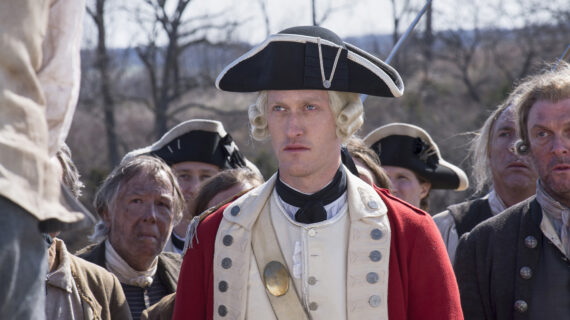
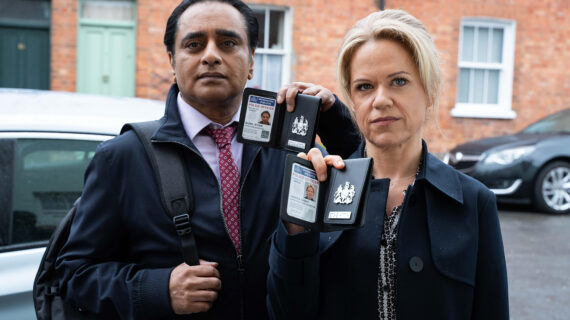
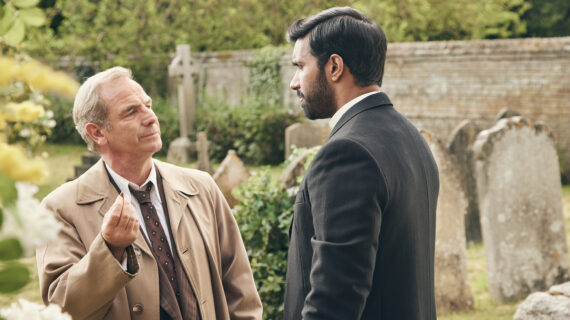
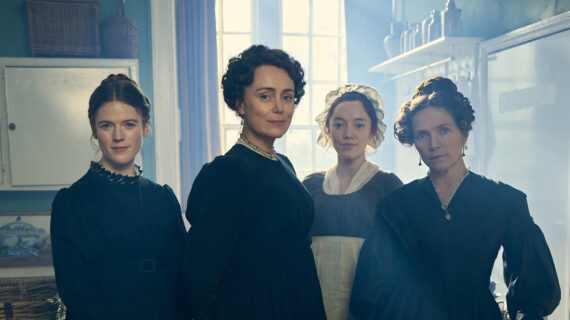

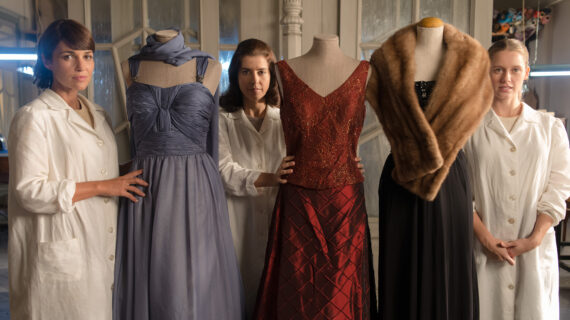
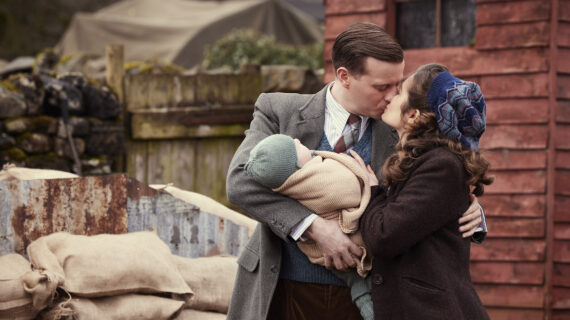

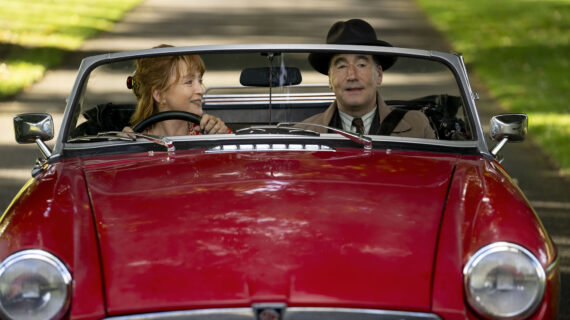
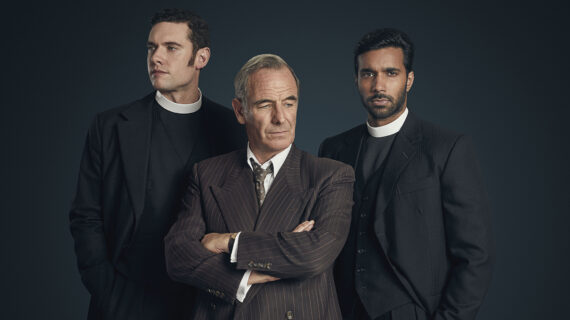
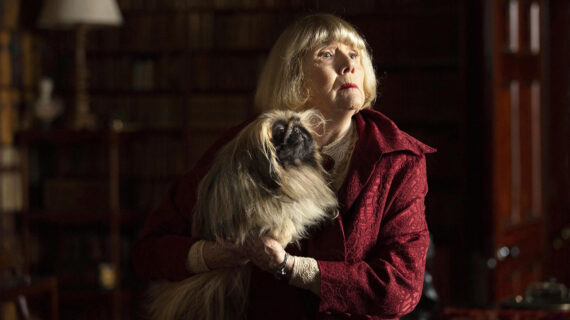

Follow Us